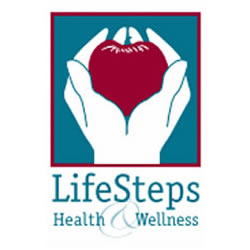
Contact Info
LifeSteps Health & Wellness Clinic
4601 N Oakland Ave
Shorewood WI 53211
(414) 906-1998
info@lifesteps-wi.com
Serving all of Metro Milwaukee
![]()
LaDea Medical Aesthetics
& Laser Clinic
Direct (414) 906-1998
www.ladeamedispa.com


Male Hormones
When we talk about aging in America we usually think about women going through their menopausal changes. Men generally think they are not going through the same changes as women, but this is not true. Doctors have labeled the condition for male menopause as Andropause.
Male Hormones
Men with low testosterone are diagnosed as hypogonadism and erectile dysfunction.
The Mayo Clinic did an extensive study on men between ages 30 and 80, and found that men at the age of 30 experience up to a 2 percent decrease in their testosterone level every year. As men continue to age and their testosterone levels continue to decline, some physiological changes start to happen. They start to have problems with sexual function, decrease in muscle mass, disappearance of facial and body hair, increase in body fat, depression, osteoporosis and a decline in over all well-being.
Low levels of testosterone may also result from other conditions such as obesity or severe systemic illnesses, including malnutrition, AIDS, and hepatic cirrhosis. One of the most common contributions to low testosterone levels is aging.
Today, approximately 4-5 million American men are facing Andropause and only 5 percent of them seek medical treatment. Men
have a tendency to ignore the symptoms of Andropause, believing that
the symptoms are a normal part of aging. However, living with these
symptoms does not have to be a way of life.
Physicians can help with hormone replacement. The treatment of
Andropause and hypogonadism relieves symptoms, but it also helps
with the prevention of Osteoporosis and muscular protection. In
mid-life, men normally experience less bone fractures than women of
the same age, but by the age 80 occurrence of fractures and breaks
are equal in both sexes.
The first step in evaluating patients for Andropause or hypogonadism is with a questionnaire that will connect the symptoms of Andropause. This questionnaire is called ADAM- Androgen Deficiency in Aging Males. The questionnaire includes these10 questions:
-
Do you have a
decrese in libido (sex drive)?
-
Do you have a
lack of energy?
-
Do you have a
decrese in strength and/or endurance?
-
Have you lost
weight?
-
Have you
noticed a decreased "enjoyment of life"?
-
Are you sad
and/or grumpy?
-
Are your
erections less strong?
-
Have you
noticed a recent deterioration in your ability to play sports?
-
Are you
falling asleep after dinner?
-
Has there been
a recent deterioration in your work performance?
If you fit the criteria for Andropause, a blood test will be done. If the lab tests reveal that hormones are deficient, we need to look at the whole individual. Dietary and lifestyle changes may help. Exercising, taking vitamin supplements, a diet low in saturated fat and rich in vegetables, whole grains, healthy meats, soy protein and lots of water is beneficial. If the physician feels that the patient needs hormone replacement, there are different methods of receiving therapy. Oral tablets are available, but avoided because of their toxic side effects to the liver. Testosterone injections can be given at a doctor's office on a weekly basis. Patches, topical gels and creams are also available and convenient; they are applied directly to the skin where it can be absorbed quickly.
It is very important for men who may have signs of low
testosterone - Andropause to find a physician who is experienced and
knowledgeable with hormone replacement because of the risks that
accompany treatment. Some men should not undergo hormone replacement
therapy due to the risk of developing prostate cancer or other
prostate problems. Men who have had prostate cancer should not
receive hormone replacement therapy and should be screened at least
once a year. Men who have had cardiac disease, liver problems or
breast cancer may also experience problems.
